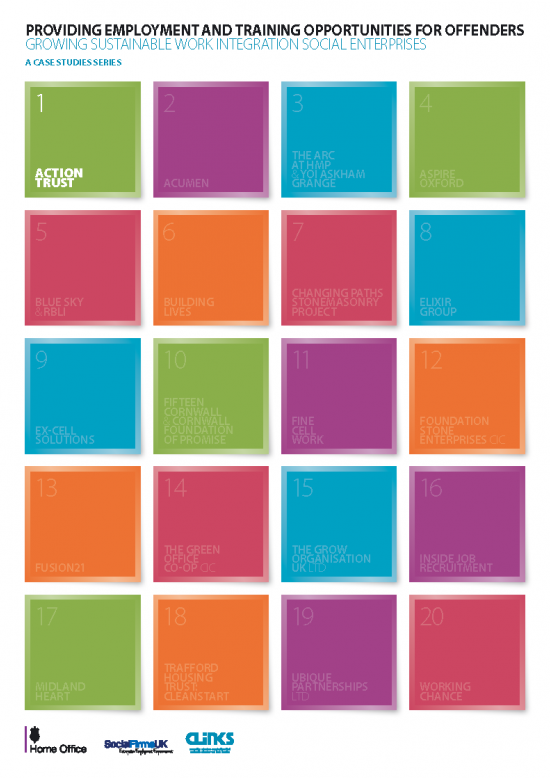
Providing employment and training opportunities for people with convictions
A case study series
Low qualifications and lack of employment was recognised within the Government’s strategy for Transforming Rehabilitation as key social issues related to re-offending.
Some local areas have already developed social enterprises as one way to overcome barriers around the employability of people with convictions. However at the time of writing there was very little that brings together learning or examples of effective practice to assist others in doing this.
Recognising this gap, the Home Office commissioned a short term programme of work undertaken in February and March 2013 by Clinks and Social Firms UK.
The programme set out to explore and assess the role of social enterprises in enabling both adult and young offenders to access training and employment opportunities. The results provide a body of work that will significantly contribute to cross-Government thinking about how to embed and support social enterprises working with offenders. The programme included two elements:
- The development and publication of this series of twenty case studies. The social enterprises featured were invited, following a competitive application process, to write about their own experiences and insights into the opportunities and barriers confronting their development and sustainability.
- A Summary Report which brings together the key learning about developing and sustaining social enterprises offering employment and employability training to offenders.
Together they provide a valuable resource for newly established social enterprises, for those planning to establish social enterprises, for police, prisons and probation providers, for Police and Crime Commissioners, for local Integrated Offender Management (IOM) partnerships, and for policy makers.
These resources also complement previous work undertaken in partnership between Clinks and the Home Office aimed at increasing the voluntary, sector’s involvement in local IOM arrangements.